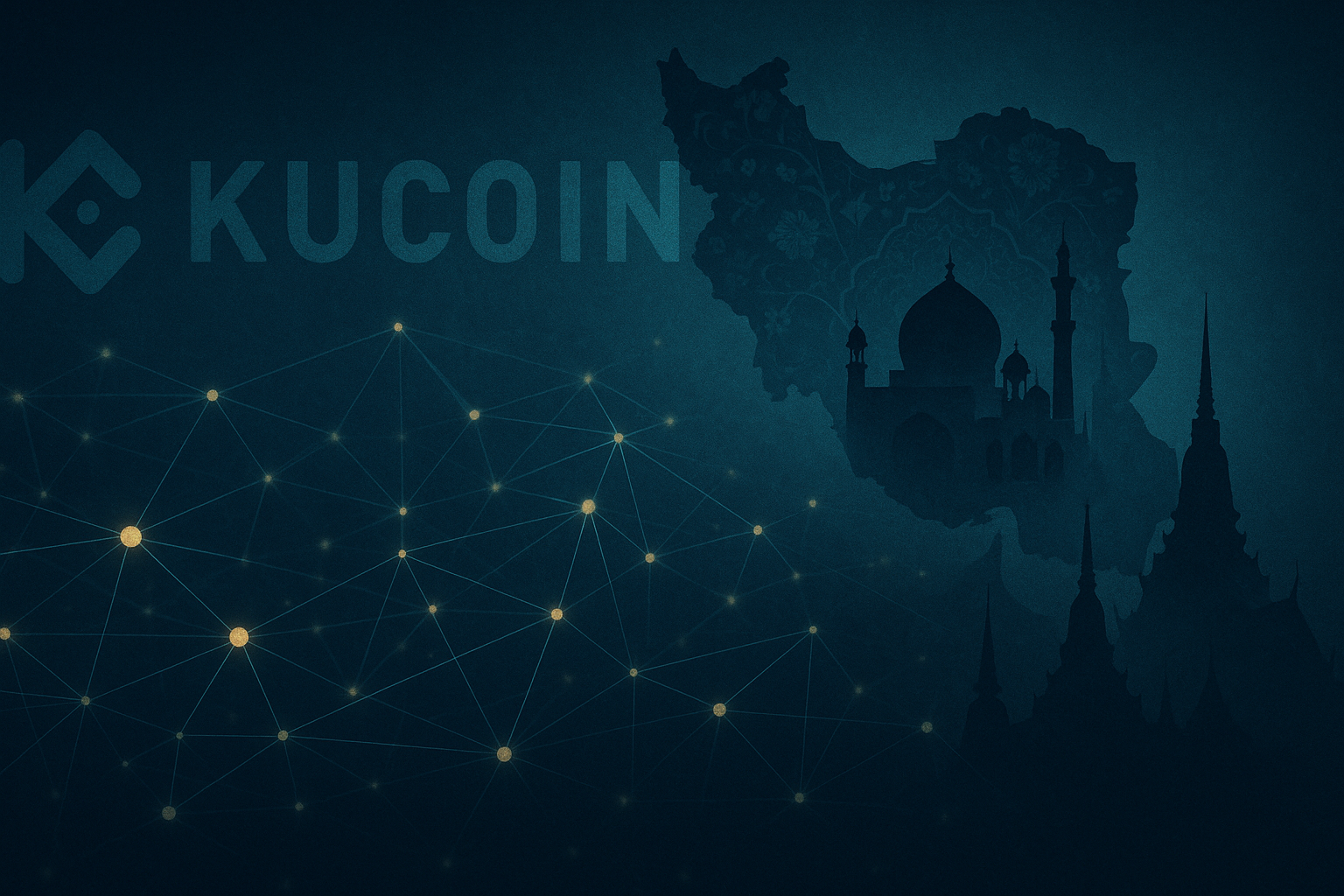
KuCoin threatened to sue us. We kept digging. What we found: a massive Iranian sanctions evasion operation that could trigger hundreds of millions in fines.
Six weeks ago, we exposed how KuCoin – the crypto exchange that pleaded guilty to criminal charges and paid nearly $300 million in fines just eight months earlier – secretly controls 44% of a Thai securities firm at the heart of a $1.5 billion money laundering network tied to former Prime Minister Thaksin Shinawatra. Within 48 hours, their lawyers were at our door with a cease and desist letter, demanding we retract our investigation, issue a public apology, and promise never to report on them again.
We refused. Instead, we published their legal threats in full and kept digging. What we found next should alarm every national security official in Washington: KuCoin has been systematically providing infrastructure for Iranian sanctions evasion through a network of front companies – the exact playbook that U.S. Treasury just sanctioned in September when it designated a $600 million Iranian shadow banking network funding the Islamic Revolutionary Guard Corps, Hezbollah, and the Houthis.
Meanwhile, Thai regulators who should be stopping KuCoin's secret takeover of a Thai securities company are either asleep at the wheel or actively complicit.
This isn't just another crypto compliance story. This is about an exchange potentially facilitating the financing of designated terrorist organizations while simultaneously controlling a licensed securities firm in Thailand. It's about national security vulnerabilities created when regulators are captured by the very criminals they're supposed to police.
Welcome to the world of shadow exchanges and captured regulators, where one of the world's largest cryptocurrency platforms operates as a global gateway for illicit finance – potentially funding America's adversaries – while the regulators meant to stop them look the other way.
Following the crypto money from Bangkok to Tehran
📖 Related investigations: Deputy Finance Minister Resigned | The Cop Who Failed To Protect Finansia
At Whale Hunting, we follow the money, especially when powerful interests try to stop us. Today, we're revealing how at least eight Iranian cryptocurrency exchanges have been operating as white-labeled fronts built directly on top of KuCoin's infrastructure, allowing hundreds of thousands of Iranians to access global crypto markets while bypassing U.S. sanctions. Based on similar schemes, this could represent hundreds of millions – if not billions – in sanctions violations, with potential OFAC penalties reaching into the hundreds of millions of dollars.
Simultaneously, we're exposing how Thailand's Securities and Exchange Commission has done absolutely nothing about KuCoin's control of Finansia X PCL – a licensed Thai broker at the center of a $1.5 billion Chinese-Cambodian money laundering network. The national security implications are staggering: an exchange potentially facilitating terrorist financing – and Cambodian scam centers that target Americans – now has its tentacles in the legitimate financial system.
If you believe in our mission to expose financial crime and hold powerful institutions accountable, consider upgrading to a paid subscription or making a one-time contribution. Your support makes investigations like this possible.
— Tom and Bradley
This story is open to all who subscribe. But investigations like this aren’t cheap. If you believe accountability journalism matters, consider upgrading to a paid subscription—or sending a one-time boost. Every contribution directly funds more reporting like this.
Have a tip? Reach us at:
📩 whalehunting@projectbrazen.com
📧 projectbrazen@protonmail.com
🔒 Secure contact details here.
We protect our sources.
 Related Posts
Related Posts